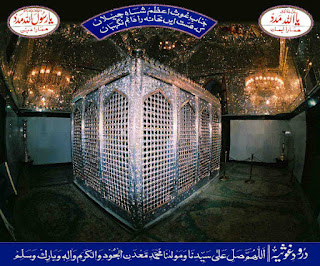Beyond the psychological benefits
to the human body and mind, Salat offers the real possibility of expressing the
true yearning of the human heart and soul to reach the Divine presence, points out the Chosen Messenger of our times.
Read the
extracts from the Sermon:
Allah has said:
“Whoever shows enmity to a friend (servant) of Mine, I
shall be at war with him. My servant does not draw near to Me with anything
more loved by Me than the religions duties I have imposed upon him, and My
servant continues to draw near me with Nawafil so that I shall love him. When
I love him I am his hearing with which he hears: his seeing with which he sees,
his hand with which he strikes, and his foot with which he walks. Were he
to ask something of Me, I would surely give it to him. And were he to ask refuge,
I would surely grant it to him.” (Bukhari)
What is implicit in this
Hadith is that man can transcend the space time barrier and acquire the attributes of
divinity, to control his entire environment. This means that he can, by
following the Sunna, insures
both physical and mental health not only for himself but will also effect
changes in his environment. This is the meaning of the successes of all Muslims
and the source of their dynamism.
Prayer said with utmost humility and tenderness of
heart becomes special prayers, just like a suckling who cannot speak can attain
utmost kindness of the mother by weeping, in the same manner the Duah with tears and utmost humility is the most effective
way to communicate with God.
There has been sent down an extremely effective,
healing and beneficial medicine, from the heaven of mercy. It is easily
available in one sense, but rare in another. It appears to be common, but is
the most special. It is beyond our description and praise, because it is
universal remedy for thousands of diseases. Such a miraculous medicine is Salat, and duah. Prayer is the yearning
of the heart to be one with the Creator and an invocation for His blessings.



